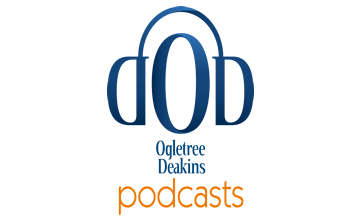Podcast: Play in new window | Download (Duration: 20:24 — 28.1MB) | Embed
Subscribe: Apple Podcasts | Spotify | TuneIn | More
In this podcast, Kevin Bland (a shareholder in Ogletree’s Orange County office) and Karen Tynan (the West Coast chair of the firm’s Workplace Safety and Health Practice Group and a shareholder in the Sacramento office) discuss compliance challenges and enforcement trends unique to California’s agriculture industry. Karen, who is also a co-chair of the firm’s Workplace Violence Prevention Practice Group, and Kevin review some of the most frequently cited standards in the industry, including heat illness, Injury and Illness Prevention Program (IIPP) regulations, lockout/tagout, guarding, field sanitation, and training. They also provide practical tips related to training seasonal workers and wildfire smoke hazards.
